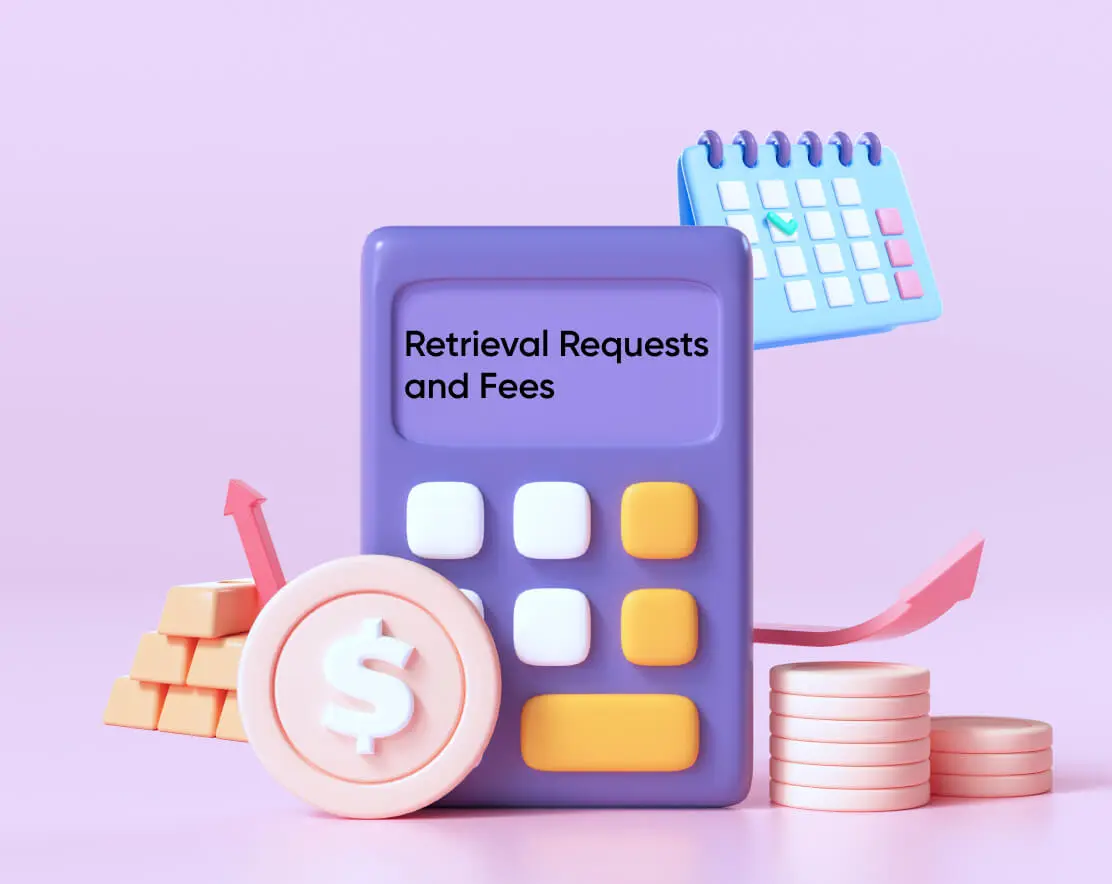When a customer makes a purchase from your business, the transaction details travel from your payment provider to their credit card provider, known as the issuing bank. When the issuing bank needs more information, they may send a retrieval request to the acquiring bank that holds your business accounts.
The processor charges a retrieval fee to resolve the issue. If you don't respond to the request for more information, you could receive a chargeback for the purchase. In this guide, we'll help you prepare for retrieval requests so you can avoid costly fees and chargebacks.
{{text-box}}
What Is a Retrieval Fee?
Payment processors charge a retrieval fee when an issuing bank requests transaction information from your bank. Retrieval fees range from a few dollars to $20 or more, depending on your merchant account contract.
Reasons for Retrieval Requests
You could receive a retrieval request if:
- The issuing bank flags the charge as fraud if it's an unusual purchase for their customer.
- An error at the point-of-sale terminal prevents transmission of necessary information to complete the transaction.
- The customer disputes the sale because they're not satisfied with the purchase or don't recognize the charge.
- The transaction amount billed doesn't match the expected amount of the sale.
- The customer wants more information for personal records but no longer has the sales receipt.
Depending on the result of the retrieval, your merchant account could receive a chargeback for the questionable transaction. This can happen even for valid transactions if you don't have the receipts to answer the request.
How to Respond to a Retrieval Request
Usually, the issuing bank wants to see a copy of the sales draft, so you should save these receipts for at least three years. Credit card companies also require you to save sales drafts for a certain amount of time (180 days for Visa and three years for Mastercard).
Your merchant services provider should have a policy about handling retrievals and chargebacks. You can review your contract so you know what to expect in this situation. Often, for example, the provider will address the request without contacting you for additional info. Other providers ask you to provide documentation directly.
Credit card companies usually require retrieval responses from the acquiring bank within 20 to 30 days before issuing a chargeback for the purchase. As the merchant, you'll need to respond to requests from your provider as soon as possible, so they have the information they need to avoid a chargeback.
You can proactively reduce retrieval requests with a clear customer satisfaction policy. If your customers know how to reach you if they're unhappy with a purchase, they'll be more likely to contact you for help instead of filing a credit card dispute.
How to Choose a Merchant Service Provider
Selecting a merchant service provider with a transparent fee structure can help you avoid steep unexpected charges for retrieval requests.
Pay.com charges an easy-to-understand flat rate for each transaction through our one-stop-shop payment infrastructure. It provides everything you need to accept credit and debit cards from your customers and track your transactions as well as handling retrievals and other requests. Click here to sign up now!
The Bottom Line
Retrieval requests can cause issues if you aren't ready to respond. However, you can reduce their impact on your business by maintaining several years of receipt records and having clear customer service policies.
If you don't understand the fee structure of your merchant account, you should consider switching to Pay.com for full transparency about your charges.









